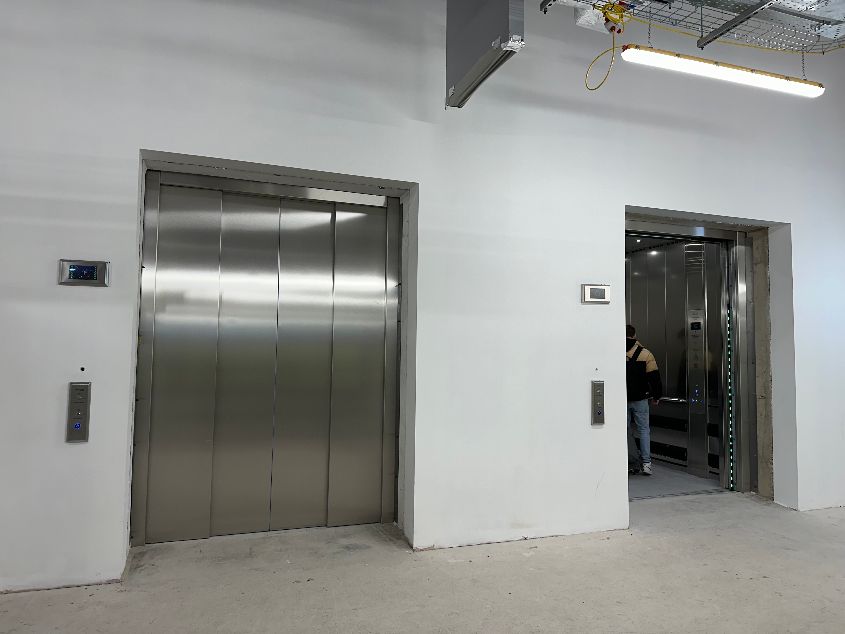Birmingham Airport (BHX) has begun bringing into use four 50-person lifts as part of its +£50m project to build a state-of-the-art new security screening hall for customers.
In January 2024 BHX will take delivery of its new security screening equipment, which will then be installed before staff are trained on it ahead of the planned operational switch-on in June 2024. In preparation for this, between now and January, BHX will phase into use the four Sheridan lifts.
These will become the main means of moving between the ground and first floors of the terminal, ultimately replacing the temporary lifts and staircases in use since the summer. Old escalators connecting the ground floor check-in area and the first-floor departures area have been removed and the external façade of the terminal building moved outwards, creating more space for customers as they enter the terminal.
Once completed the new security screening area will deliver a more efficient process and a better experience for customers. Stephen Barker, Development and Construction Director for BHX, said: “Phasing the new lifts into use is an important step in our work to transform the BHX terminal.
“It will deliver a more efficient pre-flight screening process and will make us compliant with new Government regulations. Customers will have seen the extent of the work we are doing as they have passed through the airport since April 2023.
“We thank both customers and airport staff for bearing with us as we work towards delivering this fantastic new facility.” Project teams have been working on-site 21 hours a day to safely deliver the project on time.
Above the new security hall is a newly constructed insulated roof clad with solar panels. These panels will generate green electricity to help run the airport as it progresses towards its goal of becoming a carbon net zero operation by 2033.
The Next-Generation Security (NGS) hall project is part of BHX’s £300m capital investment programme over the next decade to create a more efficient terminal capable of serving 18 million customers a year by 2033.












